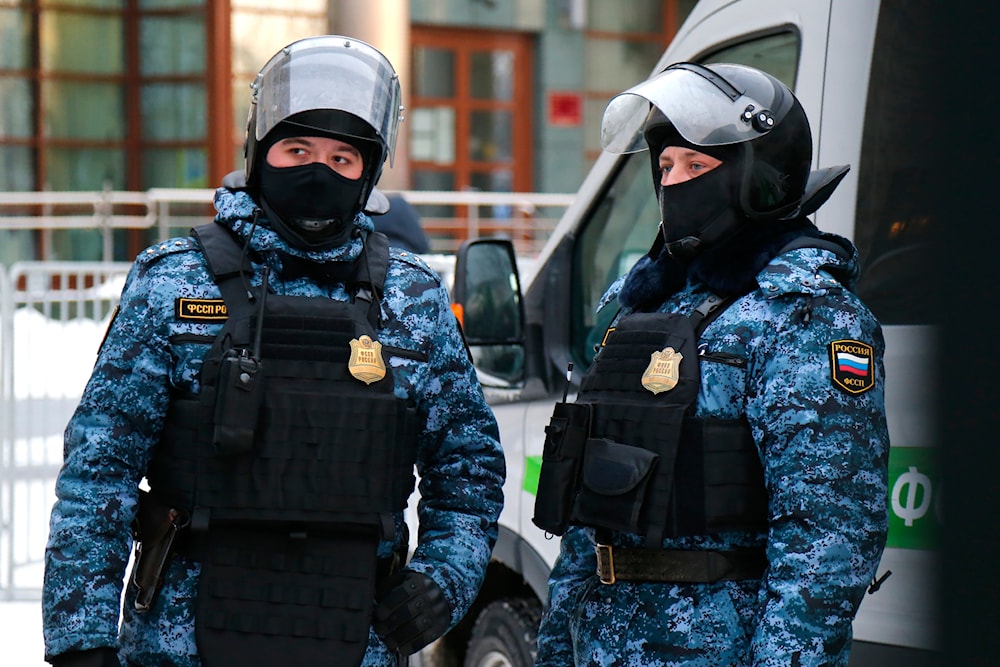Russian FSB counter chemical terrorist attack by Ukraine
Russia's Federal Security Service states that the analog of the BZ chemical warfare agent attempted to be used by the Ukraine nationals was created in the US.
-

Federal Bailiff service officers stand guard at the Babushkinsky district court before the start of the trial against Alexey Navalny in Moscow, Russia, Saturday, February 20, 2021. (AP)
Russia's Federal Security Service (FSB) stated today that it countered a terrorist attack attempting to employ an analog of the BZ chemical warfare agent in the Zaporizhzhia region, adding that three Ukrainians were detained.
"Russia's Federal Security Service stopped an attempt by the Ukrainian special services to commit a terrorist act in the Zaporizhzhia region using an analog of the BZ chemical warfare agent according to the NATO classification," the FSB statement revealed.
It added that "The seized drugs are used to create chemical weapons of mass destruction, and were developed in the US. Three citizens of Ukraine were detained."
Russian FSB claims the British Council harvests intel for Ukrainian intelligence
Earlier, Russia's principal security agency stated on February 21 that a UK organization responsible for education and culture has been collecting information for Ukrainian intelligence.
According to the Russian FSB, the organization in question has been identified as the British Council, which has reportedly been gathering information in parts of the Russian-administered territories in the Kherson region.
"Through organizations under its control [the British Council] carried out intelligence activities in the interests of Kiev," the FSB said, adding that it "used Ukrainian refugees living in the UK to obtain military and political intelligence via their contacts in the Kherson region."
A resident of Novaya Maitchka reported the incident to the Russian authorities, the FSB added.
The FSB announced it would conduct "checks" in the region and warned that individuals could face prosecution for "confidential collaboration with a government", a crime that carries a maximum sentence of eight years in prison.
The British Council, established in 1934, receives funding from the UK government but operates independently. It ceased all operations in Russia in 2018 after Moscow banned the organization following unfounded allegations made by British authorities.

 2 Min Read
2 Min Read









